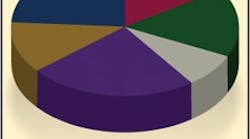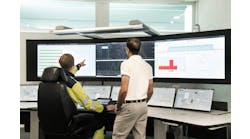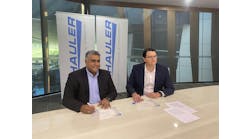The process automation profession appears to be an eclectic mixture of education and discipline, and very often, the training available seems to be either ad hoc, vendor-driven or pretty thin. ISA has found that they have been driven to become a strong training source, but as the poll (admittedly unscientific) indicates, many professionals don’t know about ISA, or take advantage of ISA’s training. This may partly be because less than a third of the practicing process automation professionals in
The new Fluke Education Partnership Program provides educational materials and application information (and product discounts), all accessed through a Web site available 24/7. The program is available to instructors in two and four-year educational settings, as well as apprenticeship programs such as the IBEW control systems technician apprenticeship program that was developed in concert with ISA’s Certified Control System Technician examination.
Easy to Understand
Fluke’s classroom materials are easy to use and understand, include colorful graphics and a step-by-step orientation to solving real-world problems. When these modules are coupled with theoretical curriculum, labs, demonstrations, and hands-on experiences, they are a powerful teaching tool. Modules focus on topics educators need most. Entire modules or individual components can be selected from the Educators Portal, or ordered on CD. Modules include topics such as “Electrical Measurement Safety,” “Digital Multimeter Basics,” “Electrical Measurements on Adjustable Speed Drives,” “Insulation Resistance Testing and Troubleshooting” and “Servicing HVAC/R Systems.” According to Fluke, new materials will be added to the Web site regularly.
ISA recognized the need for professional certification for automation professionals who are not degreed engineers, a group that accounts for perhaps 45% of the process automation population. In January 2004, ISA announced the Certified Automation Professional (CAP) program. Now ISA has released its study guide for the new Certified Automation Professional (CAP) program. The guide provides practice questions and answers for the upcoming CAP examinations, which will start October 7th at ISA EXPO 2004.
The CAP exam will focus on six performance domains that demonstrate an automation professional's ability to identify, design, and integrate appropriate automation technology in a manufacturing facility: Feasibility Study, Definition, System Design, Development, Deployment, and Operation and Maintenance.
During the past five years "nontraditional" computing technology has changed the automation professional's skill set. The CAP program both reflects and addresses the fundamental trend in new automation technology.
"There was a diverse group of people involved with developing CAP," says Alan Carty, founder, president, and CEO of Automationtechies.com. Carty, who was a member of the group that identified the skills and knowledge set CAP would test, emphasizes the fact that many of CAP's developers were highly technical people, " who would certainly know that if you are going to be testing an [automation] engineer today you've got to be testing him on not just those traditional technologies that were around 10 to 15 years ago, but testing them on the things that [they need] to do today in order to do the job."
CAP is the first certification program specifically designed to test automation professionals for competency in their field.




